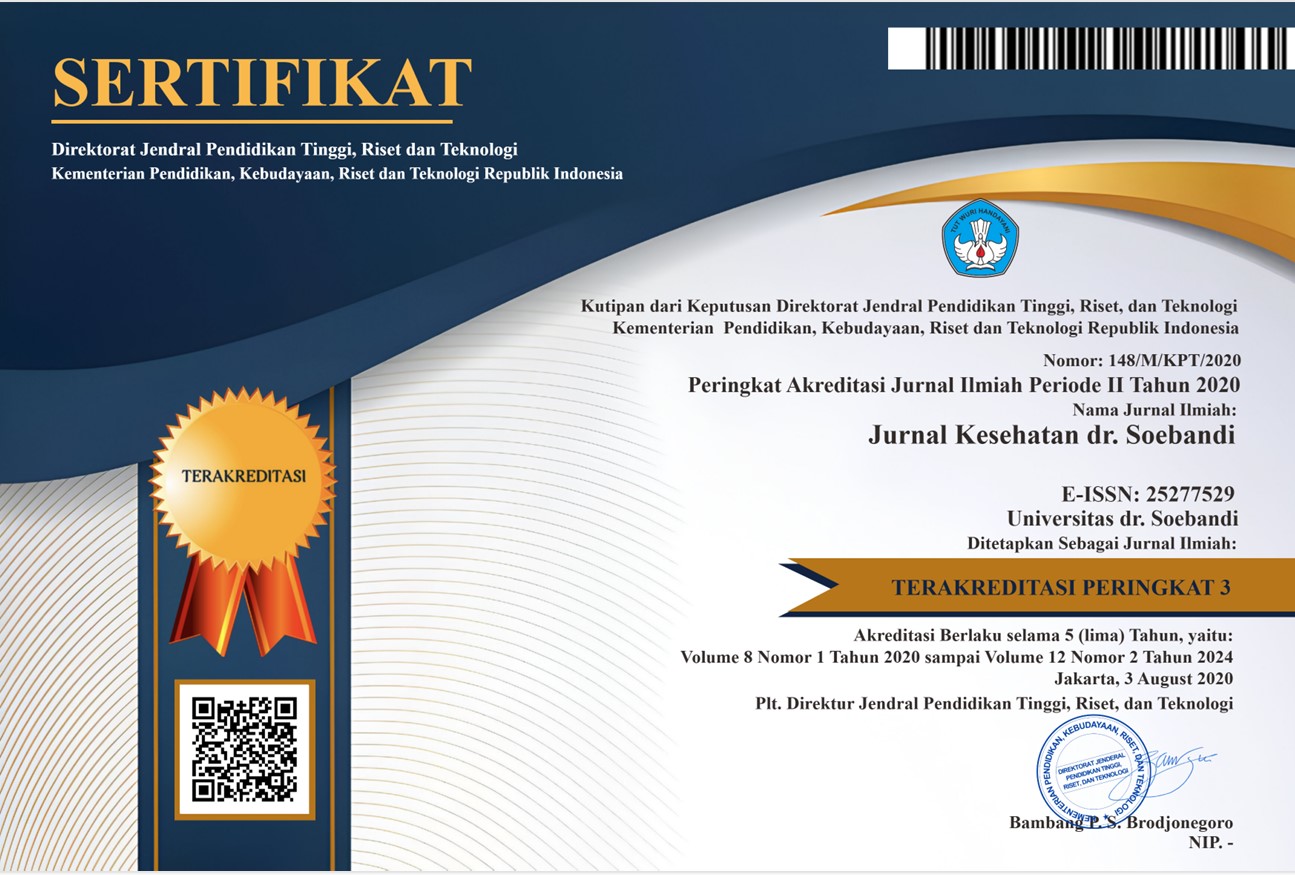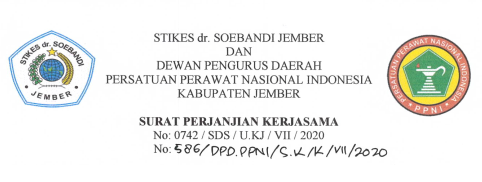The Effect Of Cardiopulmonary Resuscitation (CPR) Training On Knowledge, Attitudes And Practices Of Pool Guards
DOI:
https://doi.org/10.36858/jkds.v9i1.271Abstract
Introduction: CPR is a very vital implementation in cases of cardiac arrest. The occurrence of cardiac arrest is influenced by several factors one of cause is drowning. Pool lifeguard is one of the jobs that has the potential to find cases of cardiac arrest but the majority of them have never received CPR training. The purpose of this study was to determine the effect of pulmonary resuscitation (CPR) training on knowledge, attitudes and practices on the management of cardiac arrest. Objective: To determine the effect of pulmonary resuscitation (CPR) training on knowledge, attitudes and practices on the management of cardiac arrest. Methods: This study uses a pre-experimental design with one group pretest-posttest design. The sampling technique uses total sampling of 10 pools lifeguards of Metro swimming pool, Kepanjen. Research conducted in May 16-17 2019 at Kepanjen Metro Swimming Pool. The independent variable is Cardiopulmonary Resuscitation (CPR) training and the dependent variable is the knowledge, attitude, and practice of cardiac arrest management. Results: Statistical tests using the Wilcoxon Test with result variable knowledge p value = 0.002; attitude p value = 0.007; and practice p value = 0.004. All three variables show the effect of CPR training with increase in knowledge, attitudes and practices in pool guards. Limitation of this study is time for evaluation too fast, only one day away from research. Conclusion: Several things that influence the results of this study are information exposure, experience, education level, body mass index (BMI), and gender. It is hoped that pool lifeguard can apply first-aid cardiopulmonary resuscitation (CPR) to drowning victims







